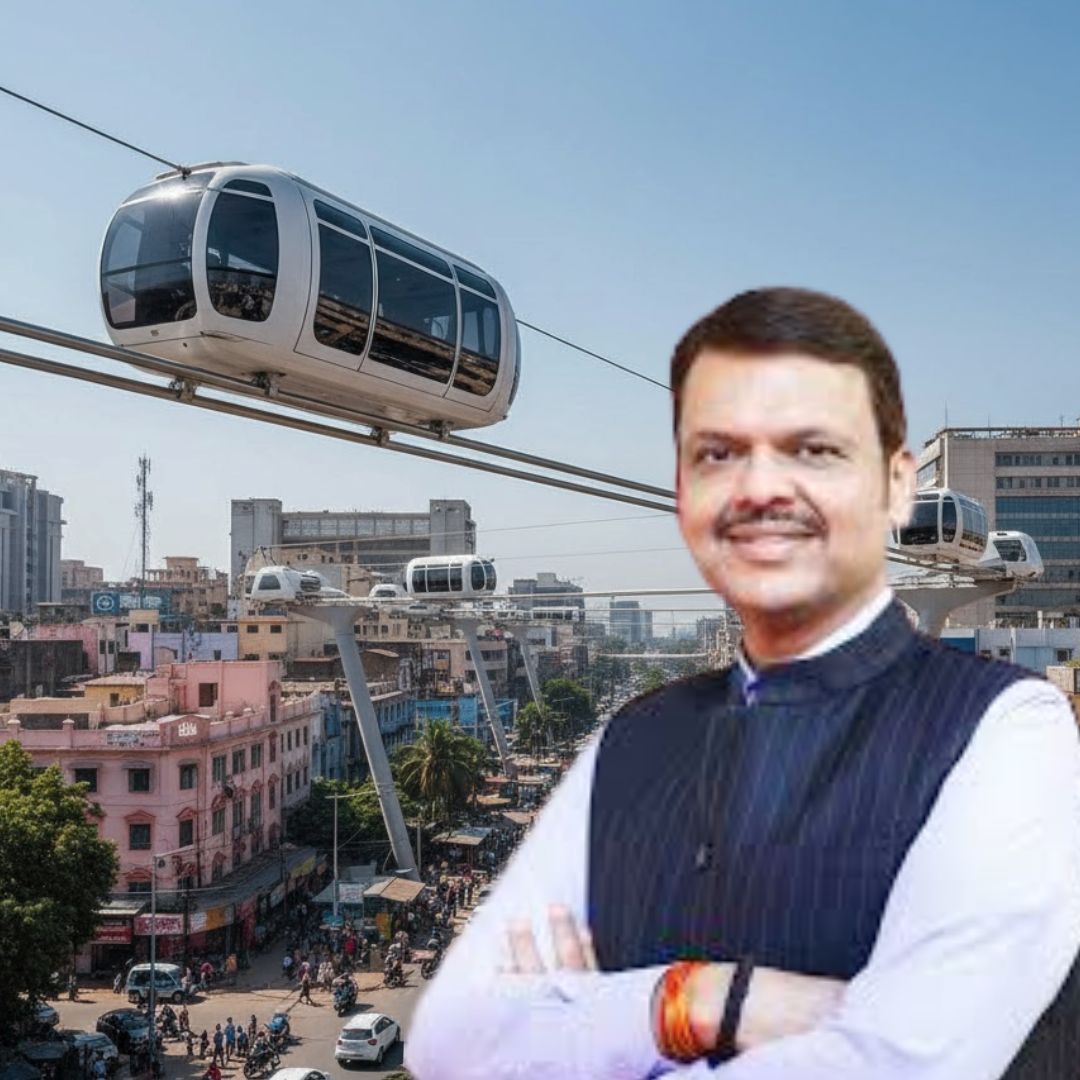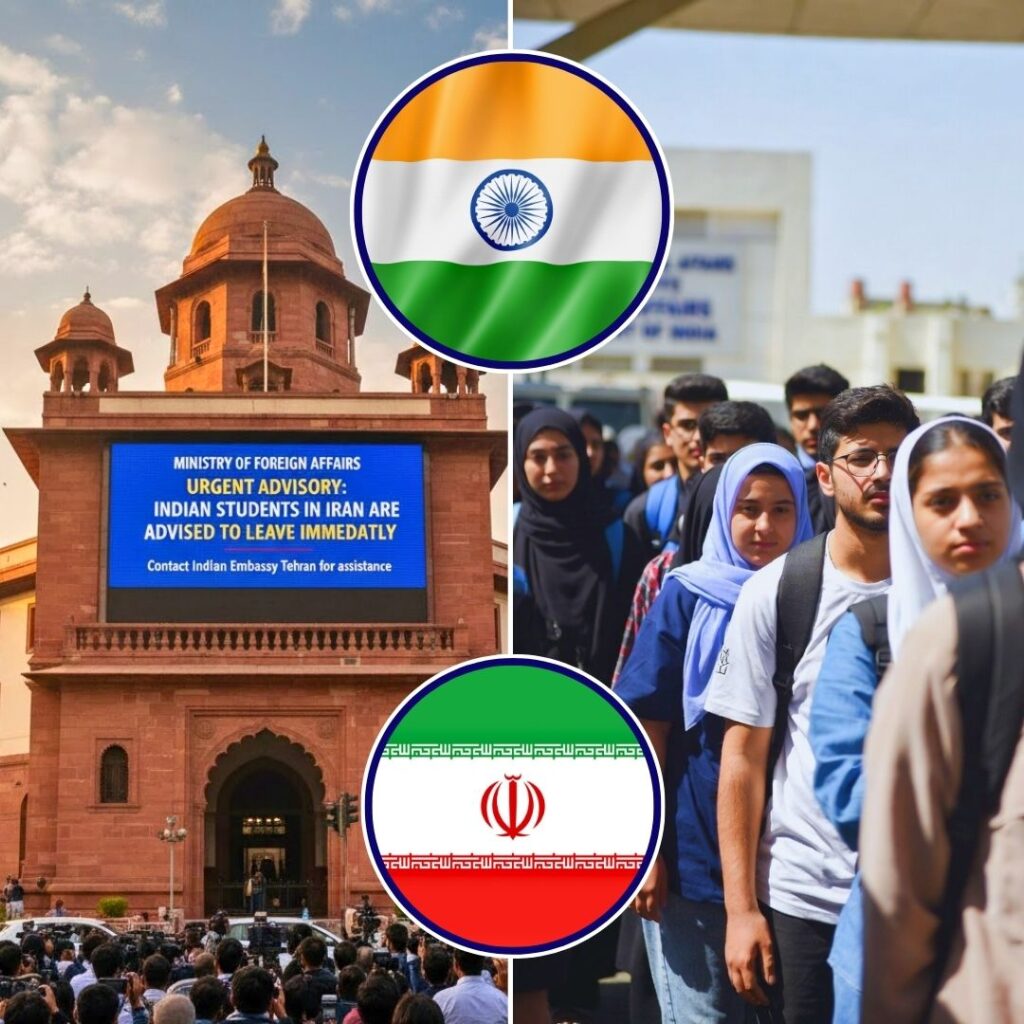The Maharashtra government has directed the Mumbai Metropolitan Region Development Authority (MMRDA) to conduct detailed feasibility studies for introducing India’s first pod taxi network connecting Thane, Navi Mumbai, and Mira-Bhayandar.
This automated, elevated transit system aims to ease traffic congestion in these rapidly growing urban areas by providing a low-emission, driverless, cable-operated feeder service integrated with metro and road transport.
The move, under Chief Minister Eknath Shinde’s leadership, will function on a public-private partnership model with the MMRDA as the nodal agency. Private firms have been invited to submit technical and financial proposals following initial survey work.
Addressing Transport Challenges
Thane, Navi Mumbai, and Mira-Bhayandar have seen rapid population growth, resulting in increasing road congestion and growing commuter times.
Pod taxis, running on elevated guideways, offer an innovative solution bridging last-mile connectivity gaps especially for metro users and bus commuters, avoiding expensive land acquisition and minimising noise and pollution.
The state’s decision builds upon similar pilot projects such as the Bandra Kurla Complex (BKC) pod taxi system, estimated to cost around ₹1,016 crore, which aims to improve connectivity between the metro and railway stations in Mumbai’s business district.
Implementation Strategy
The MMRDA has been instructed to coordinate closely with municipal authorities to identify suitable corridors and assess traffic demand patterns. The public-private partnership approach aims to leverage private sector efficiencies without burdening local corporations financially.
Residents and daily commuters in the region have welcomed the state’s forward-looking transport policy, hopeful it will significantly reduce travel times and enhance commuter comfort, while also contributing to environmental goals with zero tailpipe emissions.
What is a Pod Taxi?
A pod taxi, also known as Personal Rapid Transit (PRT), is a modern automated transport system using small, electric, driverless vehicles (pods) that run on dedicated elevated or ground-level guideways. Each pod typically carries 3-6 passengers directly to their destination without intermediate stops, making the service fast, efficient, and on-demand.
Powered by electricity, pod taxis are eco-friendly, emitting zero pollution. They operate on separate tracks, preventing interference from road traffic, and thus offer smoother travel with fewer delays. This fully automated system enhances safety and comfort while reducing congestion and travel times.
Global Use of Pod Taxi
Pod taxi systems are operational or in pilot phases in several countries worldwide. Notable examples include Masdar City in Abu Dhabi, Heathrow Airport in London, and various sites in Japan and South Korea. These countries use pod taxis mainly for last-mile connectivity in urban spaces, business districts, and airports.
India’s pod taxi projects are learning from these global models to implement tailored solutions for its dense metropolitan regions. With emerging urban mobility challenges, pod taxis present a futuristic solution combining green technology and smart transit design to revolutionise public transport.
Benefits of Pod Taxi Network
The proposed pod taxi network offers numerous benefits including reducing road congestion by providing elevated, dedicated transit routes separate from busy streets. These electric, driverless pods promise eco-friendly travel with zero tailpipe emissions and quieter operation, supporting cleaner urban air.
The system’s automation reduces human errors, improving commuter safety. Offering point-to-point service with minimal wait times, pod taxis enhance convenience and reduce travel time.
Designed to seamlessly integrate with existing metro and bus systems, they improve last-mile connectivity and encourage public transport use, potentially lowering private vehicle dependence. This fosters a more sustainable, efficient, and commuter-friendly urban transport ecosystem.
The Logical Indian’s Perspective
The pod taxi initiative represents a promising step towards sustainable, technology-driven urban mobility in India. It exemplifies thoughtful integration of modern transit systems with existing infrastructure and reflects responsible governance aimed at improving quality of life while protecting the environment.
However, effective implementation requires transparency, community engagement, and a focus on affordability to ensure equitable benefits.
News in Q&A
- What is the pod-taxi project approved in Maharashtra?
It is India’s first automated, elevated pod-taxi network connecting Thane, Navi Mumbai, and Mira-Bhayandar. Managed by MMRDA, it aims to supplement metro and road transport and reduce urban traffic congestion. - Who is leading the project and how will it be executed?
The project is led by MMRDA under the state government’s guidance, pursuing a public-private partnership model. Feasibility studies are complete, and private firms are invited to submit proposals. - Why is this project important for the region?
Rapid urban growth has caused severe congestion. The pod taxis offer safer, cleaner, and faster transport by running driverless pods on dedicated elevated tracks, reducing pollution and travel times. - How will the project impact commuters?
The pod taxis will provide point-to-point service with no intermediate stops, improving convenience and last-mile connectivity. Integration with other transport modes will ensure seamless travel experiences. - What are the challenges and outlook for this initiative?
Key challenges include technical integration, cost management, and ensuring accessibility. However, it represents a significant step toward sustainable and smart urban transport with growing public support.












